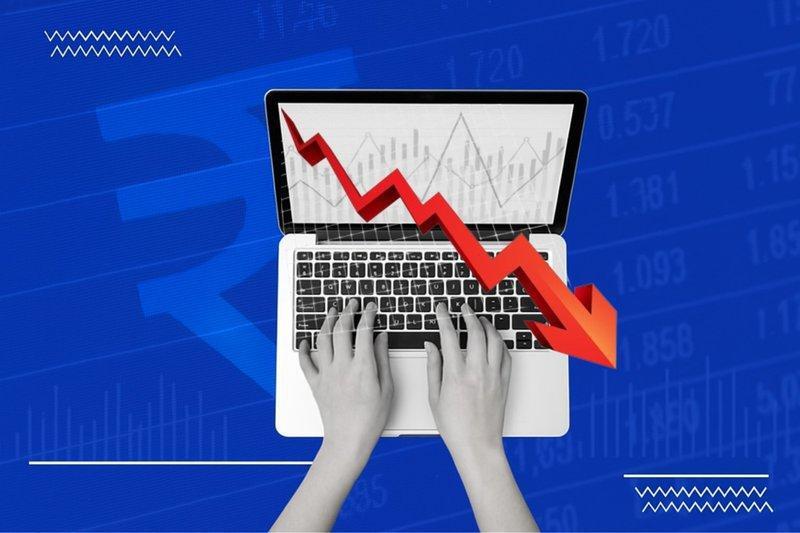
Markets Fall as Investors Turn Cautious on Inflation Data
The Indian stock markets ended lower on Tuesday, reversing gains from the previous session. The benchmark Sensex fell 368 points to 80,235, while the Nifty 50 closed at 24,487. The decline was largely driven by losses in financial, FMCG, and realty stocks.
Market experts noted that investors were cautious ahead of the release of domestic and US inflation data, leading to profit booking. The Indian government is set to release the Consumer Price Index (CPI) data for March, which is expected to have a significant impact on the market sentiment.
“The inflation data will be closely watched by the market as it will help investors gauge the direction of interest rates and the overall economy,” said a market expert. “If the data shows a sharp increase in inflation, it could lead to a rise in interest rates, which would be negative for the market.”
The financial sector was the biggest loser, with stocks such as ICICI Bank, HDFC Bank, and Axis Bank falling by up to 2.5%. The FMCG sector also saw significant losses, with stocks such as Hindustan Unilever, Nestle, and Colgate Palmolive falling by up to 2%.
The realty sector was another major loser, with stocks such as DLF, Sunteck Realty, and Oberoi Realty falling by up to 3.5%. The sector has been under pressure in recent times due to the ongoing pandemic and the subsequent lockdowns.
The decline in the Indian stock markets was also influenced by the global markets. The US stock markets fell sharply on Tuesday, with the Dow Jones Industrial Average falling by over 1.5%. The global markets were also influenced by the US inflation data, which was released on Tuesday.
The US inflation data showed that the Consumer Price Index (CPI) rose by 0.4% in March, which was higher than the expected 0.2% rise. The core CPI, which excludes food and energy prices, rose by 0.3%. The data showed that inflation is rising at a faster pace than expected, which led to a sell-off in the global markets.
The decline in the Indian stock markets was also influenced by the rupee’s weakness against the US dollar. The rupee fell by 0.4% against the US dollar on Tuesday, which made imports more expensive and led to a rise in inflation.
In conclusion, the Indian stock markets ended lower on Tuesday, reversing gains from the previous session. The decline was largely driven by losses in financial, FMCG, and realty stocks. Market experts noted that investors were cautious ahead of the release of domestic and US inflation data, leading to profit booking.
The Indian government is set to release the Consumer Price Index (CPI) data for March, which is expected to have a significant impact on the market sentiment. The data will help investors gauge the direction of interest rates and the overall economy. If the data shows a sharp increase in inflation, it could lead to a rise in interest rates, which would be negative for the market.
The global markets were also influenced by the US inflation data, which showed that the Consumer Price Index (CPI) rose by 0.4% in March. The core CPI, which excludes food and energy prices, rose by 0.3%. The data showed that inflation is rising at a faster pace than expected, which led to a sell-off in the global markets.
The rupee’s weakness against the US dollar also influenced the decline in the Indian stock markets. The rupee fell by 0.4% against the US dollar on Tuesday, which made imports more expensive and led to a rise in inflation.






